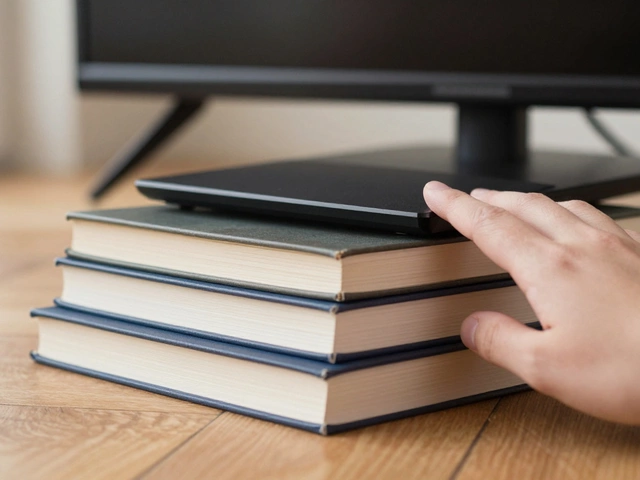Book Reading Tips: Easy Tricks to Read More and Love Every Page
Ever feel like you never have enough time to finish a book? You’re not alone. The good news is that a few tiny changes can make reading feel natural, not a chore. Below are straight‑forward tips you can start using today to read faster, stay focused, and actually enjoy what you’re reading.
Set Up a Reading‑Friendly Space
First thing – create a spot that tells your brain it’s reading time. Choose a chair with good back support, a lamp that doesn’t strain your eyes, and keep the area tidy. A clutter‑free zone reduces distractions and helps you settle in faster. If you’re short on space, a lap desk or a bean bag works just as well; the key is consistency. When you return to the same spot daily, your mind automatically shifts into reading mode.
Pick the Right Book and Break It Down
Choosing a book you’re genuinely curious about is half the battle. Scan the first few pages, read reviews, or watch a quick video summary. Once you’ve picked a book, break it into bite‑size goals – a chapter, 20 pages, or even 10 minutes. Small goals feel achievable and give a regular sense of progress. Write the goal in a notebook or set a reminder on your phone; checking it off feels rewarding.Use a timer to protect your focus. The Pomodoro method – 25 minutes of reading followed by a 5‑minute break – works well for many people. During the break, stretch, grab a drink, or glance at your phone, then jump back in. This rhythm balances concentration with rest, so you avoid burnout.
Active Reading Keeps You Engaged
Don’t just let the words glide by – interact with them. Highlight a sentence that jumps out, jot a quick note in the margin, or ask yourself a question after each section. Turning passive reading into a dialogue makes the material stick and speeds up comprehension. If you’re reading on an e‑reader, use built‑in highlighting and note tools; they sync across devices for easy review later.
Another trick is to summarize what you read in a couple of sentences before moving on. Summarizing forces you to process the main ideas and catches any gaps in understanding right away. You can keep these summaries in a reading journal that doubles as a personal reference library.
Make Reading Part of Your Routine
Instead of squeezing reading into a random slot, attach it to an existing habit. For instance, read while you wait for coffee to brew, during your commute (if you use audio books), or right after dinner. Pairing reading with something you already do builds a cue‑response loop, making it easier to stick with the habit.
If you’re struggling to find time, start with five minutes a day. Those five minutes add up to over 30 hours a year – enough for a decent novel. Scaling up gradually feels natural and keeps the habit sustainable.
Use Tech Wisely
Apps like Kindle, Audible, or Libby let you carry an entire library in your pocket. Switch to an audiobook when you’re cooking or exercising; you’ll still consume the story without needing to sit down. Sync your reading progress across devices so you never lose your place.
Turn off notifications while you read. Even a single buzz can break concentration and lengthen the time needed to get back into flow. If you need a quick pause, pause the book instead of checking your phone; you’ll be more likely to resume reading right after the break.
Stay Motivated with Community
Talking about books fuels enthusiasm. Join a local book club, an online forum, or a social media group focused on your favorite genre. Sharing insights and hearing different perspectives adds depth to your reading experience and gives you a reason to keep turning pages.
Remember, the goal isn’t to race through books but to enjoy them. By setting up a comfy space, breaking reading into small goals, staying active with notes, and tying reading to daily habits, you’ll find yourself finishing more books without feeling pressured. Give these tips a try this week – you might be surprised how quickly they become second nature.
How Many Pages Should You Read Before Giving Up a Book? Real Reader Insights
Ever wondered how many pages to read before dropping a book? Get real facts, stats, and advice on when to quit and how to enjoy reading more.







